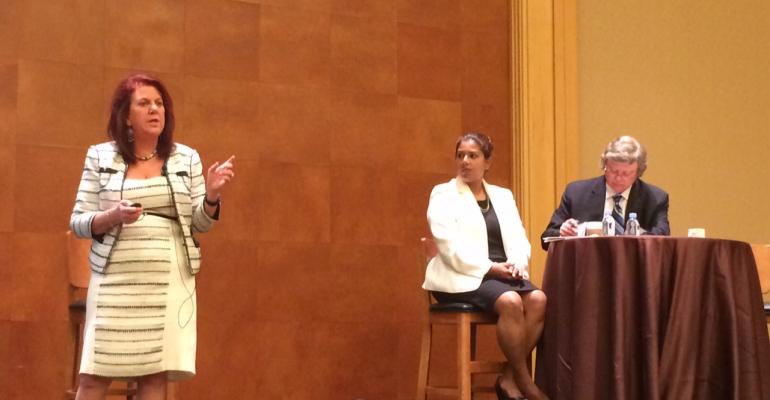HOLLYWOOD, FL – Cindy Liebes of the Federal Trade Commission warns dealers who advertise deceptively.
“The FTC is closer than you might think,” says the federal regulator’s southeast regional director.
Lest she give the impression federal agents are poised to raid dealerships and cuff egregious owners, she adds, “We’re here to educate. We’re not out to get you, we’re really not.”
Some dealers don’t even realize they are running what the FTC considers violations of violate truth-in-lending laws. The commission’s yardstick for measuring fine lines comes down to how a typical consumer might interpret an ad.
“That means the industry won’t be the one to define what’s reasonable and what isn’t,” Liebes says at this year’s Automotive Resource Network conference here.
“It’s the average Joe.”
The FTC even considers some literally truthful advertising as deceptive, she says. “Disclosures should be clear and conspicuous. Size and placement matter. So does color. Light yellow (print) on a white background doesn’t cut it.”
For online ads, “if you have to scroll down for a disclosure, that’s a problem,” she says, adding “a disclosure can’t cure a false claim.”
She cites examples of troublesome dealership advertising the FTC has gone after:
- Offering to pay off the negative equity on a trade-in vehicle when in fact the outstanding balance of the existing loan is merely rolled into a new loan.
- Touting “$12,000 off MSRP” when that deep discount only applied to one truck in stock: a $72,000 top-trim-level pickup. It’s OK to advertise a deal on a single vehicle “if the ad says that upfront,” Liebes says.
- Featuring a “great price” of $17,995, but failing to add that a customer first must pony up $5,000. So the not-as-great price actually amounted to $23,995.
- Claiming low monthly payments of $99 when that only applied to the first two months of financing.
- Using lots of zeros, as one dealer did in touting “0 down, 0% financing and 0 problems.” Says Liebes: “It almost looks like you are getting the car for free. But $5,000 up front is not zero. And $4,100 due at lease signing? How is that zero?” Her advice: “Steer clear of zeros.”
Last year, in what was dubbed “Operation Ruse Control,” the FTC took 252 enforcement actions against dealers. “For us, auto (retailing) is a big focus,” Liebes says.
She encourages consumers to report bad-apple ads to state or federal authorities.
She also urges dealers who don’t deceptively advertise to turn in those that do. “If another dealer in your market is making claims you know are not the case, that’s unfair to you.”
Dealers willing finger offenders, says conference attendee Sharmin Arefin, a lawyer.
She recalls handling dealer-advertising complaints when she served as a New Jersey deputy attorney general and a staff attorney for the Georgia Governor’s Office of Consumer Protection.
“Most of our complaints were dealer-originated, not consumer-originated,” Arefin says.





